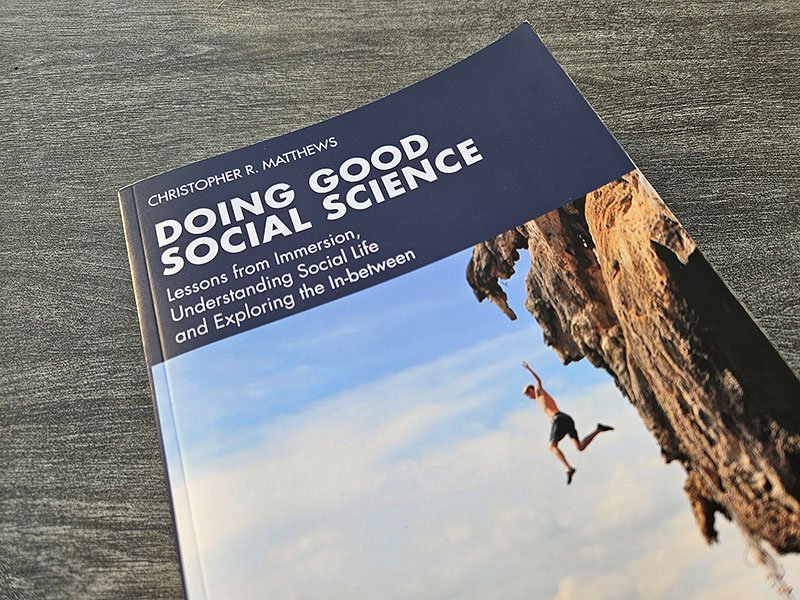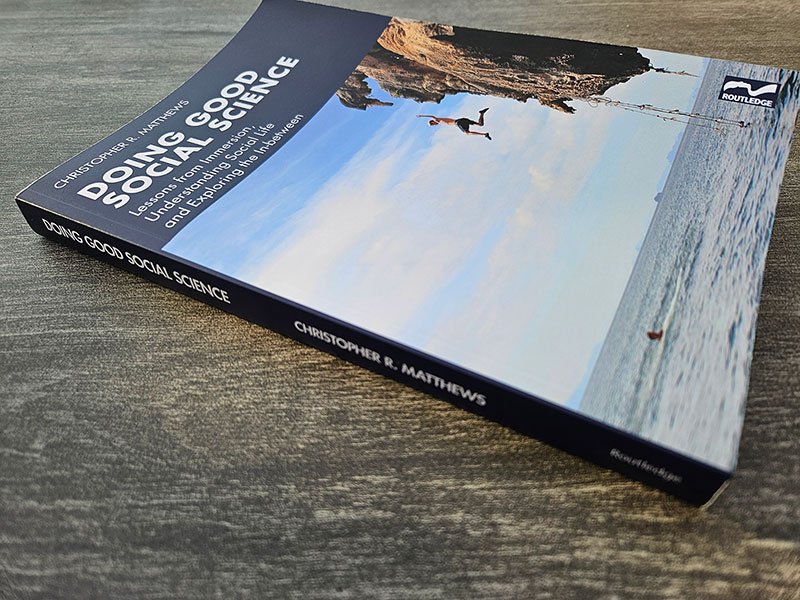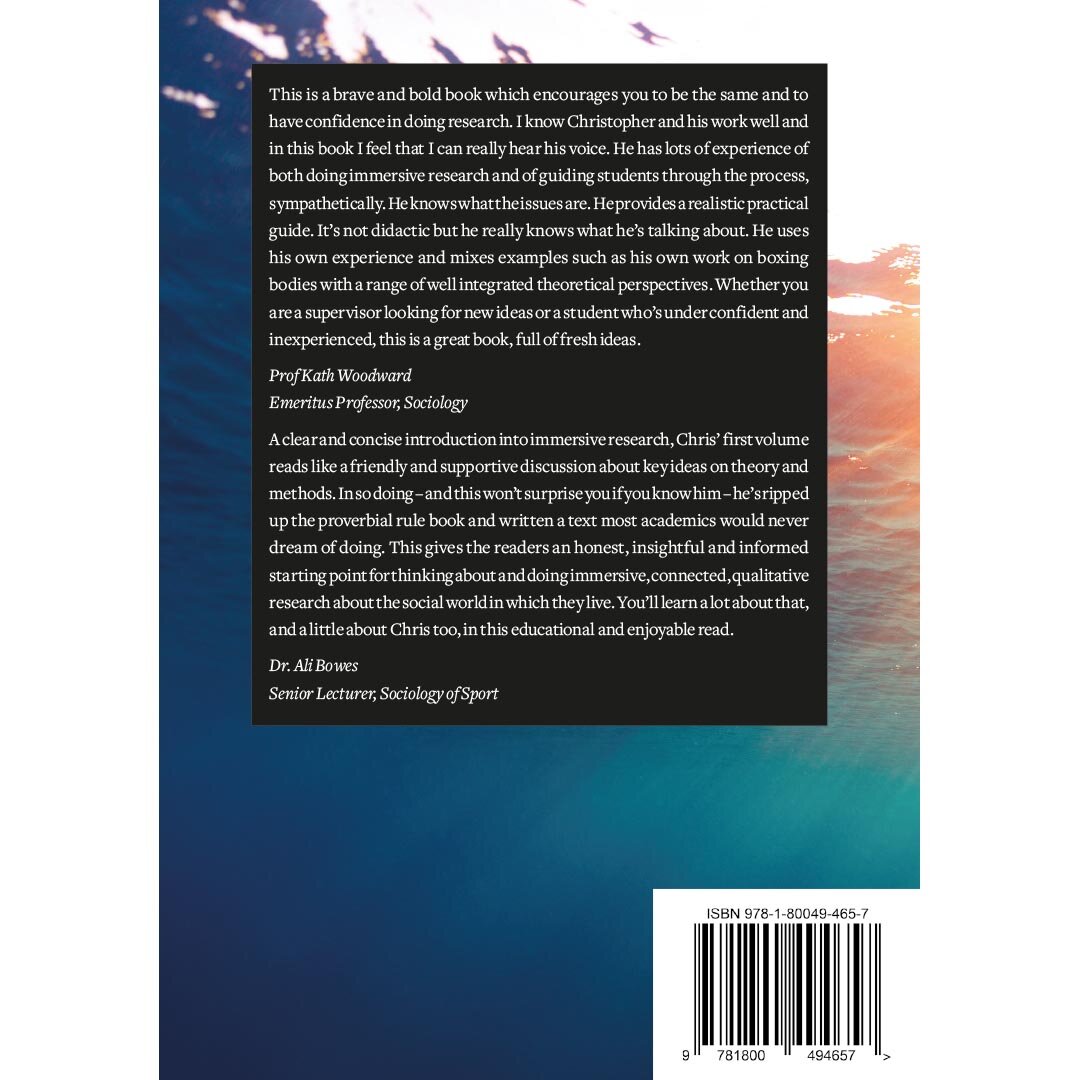
Bookshop
Doing Good Social Science
Lessons from Immersion, Understanding Social Life and Exploring the In-between
Available to buy now
Some of you might know of my last solo-authored book, Doing Immersive Research Vol.1. Doing Good Social Science is the follow-up to that text. In fact, Routledge wanted to reprint Vol.1, so I rewrote it, added a new chapter, and then added what was going to be Vol.2.
They now appear as Part One and Part Two of Doing Good Social Science. It’s been great putting both parts of my argument together, and I’m really happy with how it all came together.
This is my take on how to do good research, delivered in my unique way. I know it will be really useful for some people, especially those who align with my way of seeing the world, approaching research and considering the daft world of academia.
I guess you need to know if that’s you or not?!?
Well, for a start, if you know me, you probably already understand that I’m a bit like Marmite. So, if I’m not your cup of tea – no sweat, save your money. There’s plenty of boring, run-of-the-mill, vanilla texts for you to read elsewhere 😉
If you don’t know me, you can download an extract below. I think it does a good job of laying out what the book is all about and the way I deliver it. I know my style won’t be to everyone’s taste – some people don’t like swear words after all!
If you’re still not sure, take a moment to read some of the reviews to get a better idea of the project.
Please get in touch if you have any questions about the book, to let me know if you’ve found it useful, or anything else.
Cheers! CRM
Pricing
As I say in the book, academic ideas are tools. And this book is full of academic ideas, so it too should be seen as a tool – something that you reuse, get the feel for and perhaps eventually pass on to someone else.
This means I think it’s best if you own a personal copy rather than having to borrow one from a library. So I’ve set a price which is as affordable as I can make it. But I’ve also created a price structure that means people who are employed full time can subsidise those who are studying and are a little less well-off.
That’s how it should be right – those who have got a job helping those just starting out?
So there are two price options for you to choose between...
Full price: For those who are employed full time and for whom money isn’t tight, or whose workplace is paying for the book (if the latter is true, why not buy two and pass the second on to someone else?).
Subsidised/student price: For those who are studying and for whom money is a bit tight.
But, if you’re a student and money isn’t an issue (perhaps your department will pay for your book?), please select the full price option to help me continue to subsidise those who really need it. In choosing to pay full price, you’re helping me get the book into people’s hands at a discounted rate, and I really appreciate that.
UK shipping only: Just a heads up – I can only ship to UK postal addresses at the moment. Sorry about that! If you're ordering from elsewhere in the world, you can check out Routledge’s website, which can ship to your location. Cheers!
What people are saying…
Join the member area
To access videos, seminars, talks and other useful content from The Immersive Research Consultant, click the sign up button below.
Access member-only content for just £2 a month
This small fee helps me cover the running costs of the website. You’ll have access to hours of content about social science, teaching, supervision and career development along with monthly live sessions. Plus, you can suggest topics for future videos.
Study a PhD with Dr. Christopher R. Matthews
I specialise in conducting and supervising immersive research, but I’m keen to discuss various projects and research methods with prospective students as well.





















